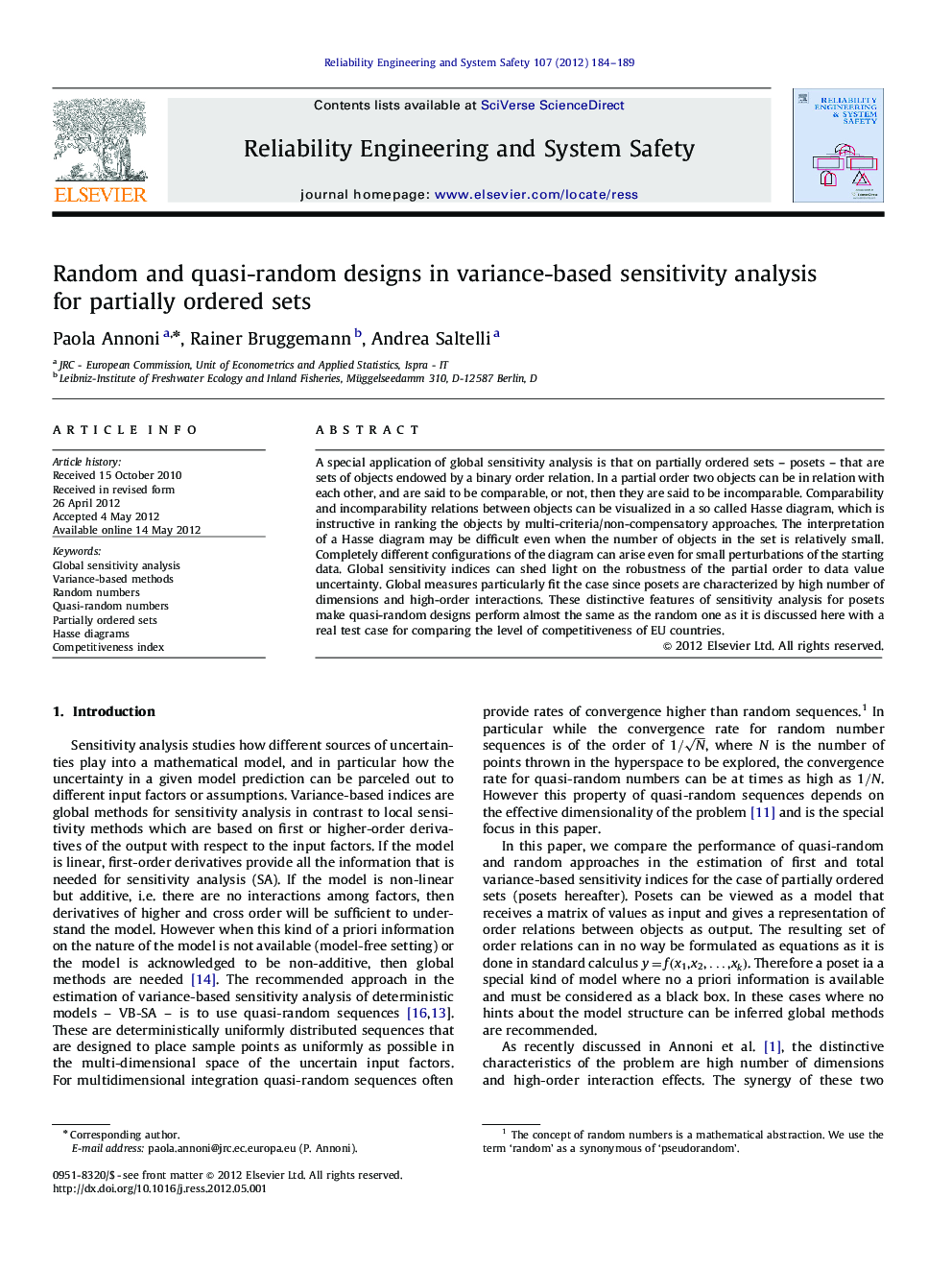| کد مقاله | کد نشریه | سال انتشار | مقاله انگلیسی | نسخه تمام متن |
|---|---|---|---|---|
| 806387 | 1468263 | 2012 | 6 صفحه PDF | دانلود رایگان |

A special application of global sensitivity analysis is that on partially ordered sets – posets – that are sets of objects endowed by a binary order relation. In a partial order two objects can be in relation with each other, and are said to be comparable, or not, then they are said to be incomparable. Comparability and incomparability relations between objects can be visualized in a so called Hasse diagram, which is instructive in ranking the objects by multi-criteria/non-compensatory approaches. The interpretation of a Hasse diagram may be difficult even when the number of objects in the set is relatively small. Completely different configurations of the diagram can arise even for small perturbations of the starting data. Global sensitivity indices can shed light on the robustness of the partial order to data value uncertainty. Global measures particularly fit the case since posets are characterized by high number of dimensions and high-order interactions. These distinctive features of sensitivity analysis for posets make quasi-random designs perform almost the same as the random one as it is discussed here with a real test case for comparing the level of competitiveness of EU countries.
► We use partially ordered sets for analyzing multi-indicator systems.
► We examine how partially ordered sets react to data uncertainty using variance-based sensitivity indices.
► We compare quasi-random and random sampling designs for the estimation of sensitivity indices.
► We conclude that there is no benefit in quasi-random designs due to the typical characteristics of partially ordered sets.
Journal: Reliability Engineering & System Safety - Volume 107, November 2012, Pages 184–189